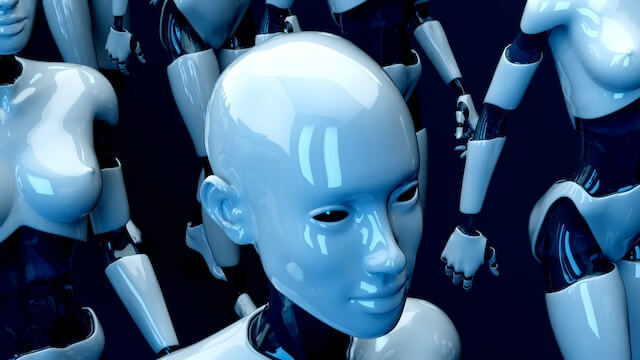The Ethics of AI: Navigating the Moral Dilemmas of Intelligent Machines

As artificial intelligence (AI) continues to advance, its integration into various aspects of society has brought about significant benefits, from enhancing healthcare and education to optimizing logistics and entertainment. However, the rise of intelligent machines also presents a host of ethical dilemmas and challenges. These range from concerns about privacy and bias to the potential for job displacement and the creation of autonomous weapons. This article explores the key ethical issues surrounding AI, the principles guiding ethical AI development, and the potential paths forward to ensure responsible AI deployment.
Key Ethical Issues in AI
1. Bias and Fairness
One of the most pressing ethical concerns in AI is the potential for bias and discrimination. AI systems are often trained on large datasets that may contain historical biases, leading to biased outcomes. For example, facial recognition algorithms have been found to have higher error rates for people of color and women, reflecting biases in the training data. These biases can perpetuate and amplify social inequalities, making it essential to address fairness in AI design and implementation.
2. Privacy and Surveillance
AI technologies, such as facial recognition and data analytics, raise significant privacy concerns. The collection and analysis of personal data can lead to intrusive surveillance and the erosion of privacy rights. Governments and companies can use AI to track individuals, monitor behaviors, and even predict future actions. The potential for misuse of AI in surveillance poses a threat to civil liberties and individual freedoms.
3. Autonomy and Decision-Making
As AI systems become more autonomous, they are increasingly being entrusted with critical decision-making tasks. This raises questions about accountability and the ethical implications of delegating decisions to machines. For example, in healthcare, AI can assist in diagnosing diseases and recommending treatments, but who is responsible if the AI makes a mistake? Ensuring transparency and human oversight in AI decision-making processes is crucial to maintaining accountability.
4. Job Displacement and Economic Impact
The automation capabilities of AI have the potential to displace jobs across various industries. While AI can increase efficiency and productivity, it may also lead to significant economic disruptions and job losses, particularly in roles involving routine and repetitive tasks. This raises ethical questions about the responsibility of companies and governments to mitigate the impact on workers and ensure a fair distribution of the benefits of AI.
5. Autonomous Weapons and Warfare
The development of autonomous weapons, or “killer robots,” poses serious ethical and security concerns. These AI-powered systems can identify and engage targets without human intervention, raising questions about the ethics of delegating life-and-death decisions to machines. The potential for autonomous weapons to be used in warfare and law enforcement raises concerns about accountability, the risk of accidental escalation, and the potential for misuse by authoritarian regimes.
Ethical Principles for AI Development
To address these ethical challenges, several frameworks and guidelines have been proposed to guide the responsible development and deployment of AI. Key ethical principles include:
1. Transparency
Transparency in AI involves providing clear and understandable explanations of how AI systems work and make decisions. This includes transparency in data collection, algorithm design, and decision-making processes. Transparency is essential for building trust and ensuring accountability, as it allows stakeholders to understand the rationale behind AI decisions and identify potential biases.
2. Fairness and Non-Discrimination
Ensuring fairness in AI involves designing systems that do not perpetuate or amplify existing biases and inequalities. This requires careful consideration of training data, algorithm design, and the potential impact on different demographic groups. AI systems should be designed to promote equity and avoid discrimination, ensuring that they benefit all members of society.
3. Privacy and Data Protection
Respecting privacy and protecting personal data are fundamental ethical considerations in AI development. This includes implementing robust data protection measures, such as encryption and anonymization, and ensuring that individuals have control over their data. AI systems should adhere to data protection regulations and prioritize user consent and transparency in data usage.
4. Accountability and Responsibility
AI developers and organizations must be accountable for the systems they create and deploy. This includes taking responsibility for the outcomes of AI decisions and addressing any negative consequences. Establishing clear lines of accountability and ensuring human oversight in critical decision-making processes are essential for maintaining ethical standards.
5. Safety and Security
Ensuring the safety and security of AI systems is crucial to prevent unintended harm and malicious use. This includes implementing rigorous testing and validation processes, as well as safeguarding AI systems against cyberattacks and other security threats. AI developers should prioritize safety and security throughout the design and deployment lifecycle.
Path Forward: Ensuring Ethical AI
The ethical deployment of AI requires collaboration and commitment from multiple stakeholders, including governments, businesses, researchers, and civil society. Several steps can be taken to promote ethical AI:
1. Developing Comprehensive Regulations
Governments and regulatory bodies should establish comprehensive regulations and guidelines for AI development and deployment. These regulations should address key ethical issues, such as data privacy, bias, accountability, and transparency. Policymakers should work with industry experts and stakeholders to create a balanced regulatory framework that promotes innovation while protecting public interests.
2. Promoting Ethical AI Research and Education
Academic institutions and research organizations should prioritize ethical AI research and education. This includes studying the ethical implications of AI technologies, developing best practices for ethical AI design, and educating the next generation of AI practitioners on ethical considerations. Promoting interdisciplinary research and collaboration can also help address complex ethical challenges in AI.
3. Engaging with Stakeholders and the Public
Engaging with stakeholders and the public is essential for understanding diverse perspectives and building public trust in AI. This includes involving stakeholders in the design and deployment of AI systems, conducting public consultations, and promoting open dialogue about the ethical implications of AI. Transparent communication and public engagement can help address concerns and ensure that AI technologies align with societal values.
4. Fostering International Cooperation
AI is a global technology, and addressing its ethical challenges requires international cooperation. Governments, international organizations, and industry stakeholders should work together to establish global standards and norms for ethical AI. International cooperation can help address cross-border challenges, such as data privacy and the regulation of autonomous weapons, and promote the responsible development of AI technologies.
Conclusion
The rapid advancement of AI technologies presents both opportunities and ethical challenges. As AI systems become more integrated into various aspects of society, it is crucial to address ethical considerations, such as bias, privacy, accountability, and the potential for job displacement. By adhering to ethical principles and fostering collaboration among stakeholders, we can navigate the moral dilemmas of intelligent machines and ensure that AI technologies are developed and deployed responsibly. The path forward requires a commitment to transparency, fairness, and human-centered design, ultimately ensuring that AI benefits all of humanity.




